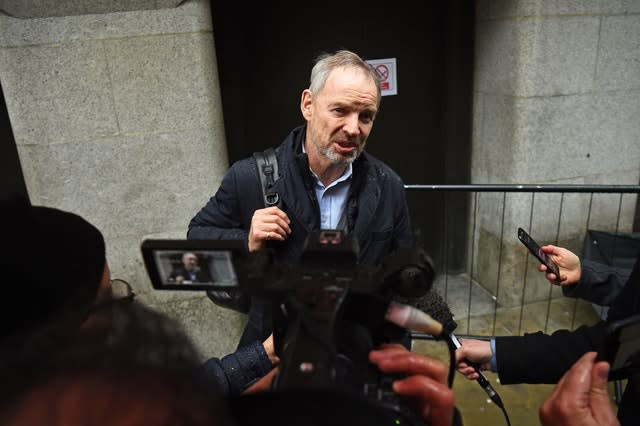Questions for fraud investigators after Barclays trio acquitted
The Serious Fraud Office faces renewed questions over how it handles complex cases after a jury acquitted three former Barclays executives accused of sending secret fees to Qatar.
It took less than six hours for the jurors to clear the three defendants of fraud charges following a five-month trial.
It is the latest failure for the SFO, whose record has been tarnished by a series of unsuccessful high-profile prosecutions.
The agency was praised when it signed an agreement with Tesco in 2017 which forced the supermarket chain to cough up £129 million following allegations it pushed suppliers for heavy discounts in exchange for prominent positioning in stores.
The deal, known as a deferred prosecution agreement, which let Tesco escape without being charged, still served as a warning to boardrooms across the country.
But the SFO later spent £6.2 million of taxpayers’ money prosecuting three former Tesco directors. They were also acquitted.
Ross Dixon, a lawyer at Hickman & Rose who defended one of the accused in the Tesco case, said that the SFO has questions to answer over how it treats individuals who are dragged through years-long trials.
“While it would be wrong for the SFO to only prosecute matters where it is certain of success; time after time allegations against individuals have been dismissed by the court or been rejected by a jury,” Mr Dixon said.
“Once again this brings into question the decision making of the SFO when it comes to individuals.”
Last year, three former executives of Sarclad, a metals company, were acquitted of charges brought by the SFO.
The agency has also dropped investigations involving individuals after a probe which led to Rolls-Royce paying nearly half a billion pounds in penalties to the SFO, and a five-year probe into alleged misconduct at drugmaker GSK.
SFO director Lisa Osofsky has questioned whether current laws are are fit for purpose when it comes to tackling complicated fraud cases.
She complained that the the bar for evidence is too high in fraud trials, telling the BBC interview last year: “We have an antiquated system.”
On Friday, a spokesperson for the SFO said: “Our prosecution decisions are always based on the evidence that is available, and we are determined to bring perpetrators of serious financial crime to justice.
“Wherever our evidential and public interest tests are met, we will always endeavour to bring this before a court.”

Speaking outside court on Friday, one of the accused former Barclays employees, Richard Boath, said that the case should never have been brought to trial.
He said: “If there was a case against the bank or any of the people in the bank, the agreements were signed off at the board, so none of the defendants were on the board, had any access to the board… and that’s point about the SFO case, it didn’t make any sense at all.”
Last year, the SFO’s charges against former Barclays chief executive John Varley were dismissed by a judge.
Jessica Parker and Peter Binning, partners at Corker Binning who represented Mr Varley, said: “The verdicts raise serious questions about the SFO decision to bring the case.”
Bambos Tsiattalou, financial crime lawyer at Stokoe Partnership Solicitors, said: “This is a huge blow to the SFO and its reputation. Today’s decision brings into question the effectiveness of the department.
“It will now be essential to conduct a thorough review of procedures within the SFO, with this being their most high profile failure to date, and the judgment of key decision makers within the department must surely be brought into question.”

 Yahoo News
Yahoo News 
